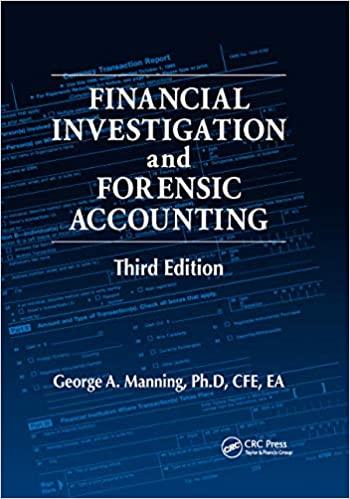Answered step by step
Verified Expert Solution
Question
1 Approved Answer
Chapter 7 bankruptcy petitions are filed in special bankruptcy courts within the federal court structure. Question 4 options: True False Question 5 (5 points) Chapter
Chapter 7 bankruptcy petitions are filed in special bankruptcy courts within the federal court structure.
Question 4 options:
True
False
Question 5 (5 points)
Chapter 11 reorganizations are only available to legal entities such as partnerships and corporations.
Question 5 options:
True
False
Question 6 (5 points)
Under Chapter 13, agencies charged with collecting and recovering unpaid child-support payments are allowed to continue such efforts despite the bankruptcy filing.
Question 6 options:
True
False
Question 7 (5 points)
Saved
When a petition is filed, an automatic stay goes into effect which postpones ALL collection proceedings against the debtor.
Question 7 options:
True
False
Question 8 (5 points)
According to the priority list of property distribution in the Bankruptcy Code, administrative expenses incurred during the administration of bankruptcy are paid before secured debts.
True
False
Question 9 (5 points)
When a Chapter 11 petition is filed, the debtor has 120 days to file a reorganization plan, which must be in conformity with the creditors and accepted by the bankruptcy court.
Question 9 options:
True
False
Question 10 (5 points)
People who are able to make a down payment and have a steady income may become eligible for a mortgage loan as soon as five years following a discharge in bankruptcy.
True
False
Question 11 (5 points)
Under the Bankruptcy Abuse Prevention and Consumer Protection Act of 2005 (BAPCPA), Congress created a system that would require more debtors to file under Chapter 7 rather than Chapter 13.
True
False
Question 12 (5 points)
A Chapter 13 petition must include a repayment plan, but priority debtors can be paid at a discount, with different rates and times.
True
False
Question 13 (5 points)
The final step to determine whether a debtor will be able to file a bankruptcy petition for Chapter 7 or not, is a determination as to whether the debtor has the ability to pay unsecured debts over a three-year period.
Question 13 options:
True
False
Question 14 (5 points)
Under the new Bankruptcy Code, alimony, child support, and Social Security payments are exempt up to an aggregate of $25,000 per year.
Question 14 options:
True
False
Question 15 (5 points)
To be eligible for Chapter 13, debtors must first meet with an approved nonprofit credit counselor and have unsecured debts of less than $400,000.
Question 15 options:
True
False
Question 16 (5 points)
According to Chapter 13 of the Bankruptcy Code, which of the following statements is correct?
Involuntary filings are permitted.
The debtor should be able to pay the entire amount they owe to each creditor.
The debtor must have an already established steady income.
Corporations and partnerships can file.
Question 17 (5 points)
The court vests the responsibility of liquidating the assets of the debtor for the benefit of all interested parties in the:
debtor in possession.
creditor in possession.
case trustee.
primary trustee.
Step by Step Solution
There are 3 Steps involved in it
Step: 1

Get Instant Access to Expert-Tailored Solutions
See step-by-step solutions with expert insights and AI powered tools for academic success
Step: 2

Step: 3

Ace Your Homework with AI
Get the answers you need in no time with our AI-driven, step-by-step assistance
Get Started


